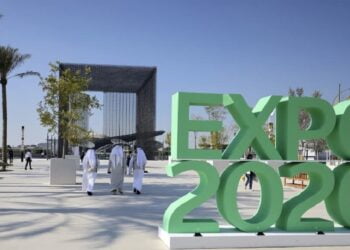The discordance of warfare resonates for months, leaving behind a tableau of distress and the echo of lost aspirations. The haunting question that rises amidst the rubble of Gaza is not just about the future of the beleaguered enclave but of the Palestinian identity and their long-sought-after dream of sovereign statehood. At the heart of this quandary is the leadership crisis that the Palestinian people face—a leadership that is divided, distant, and in many ways, disenfranchised.
In the six months since the harrowing conflict began between Israel and Hamas, precipitated by the latter’s attack on October 7, the geopolitical landscape has shifted ominously. Polls suggest Hamas, an organization with the avowed intent of Israel’s destruction, is leading popular opinion among Palestinians. Yet Israel stands firm in its resolve, backed by U.S. policy, to diminish the group it deems as terrorist-infused until its capacities are corralled.
The internecine Palestinian politics are stark in their fractures. Hamas’ main opponent, Fatah, carries the legacy of the Palestinian National Authority (PA)—a body administrating vestiges of the Israeli-occupied West Bank according to the Oslo Accords—with U.S. blessings to steward Gaza post-conflict. However, this war has only intensified Fatah’s legitimacy crisis after years of waning support and failed promises.
Herein lies the quagmire: there are no paramount leaders to whom the masses rally. Marwan Barghouti, a jailed Fatah revolutionary, commands respect but his chains are symbolic of the broader fetters on Palestinian political movement. Ismail Haniyeh, ensconced in Qatar, leads Hamas politically but remains distant from the immediate theater. Mahmoud Abbas, aged and beleaguered, who once emerged as a beacon of leadership nearly two decades ago, now finds his authority crumbling—his people bereft of hope and clamoring for his departure.
An in-depth analysis of this multifaceted crisis reveals the intricate layers of Palestinian quest for leadership and statehood:
The Leadership Void and Palestinian Statehood
The lack of leadership with a democratic mandate reflects the fractured political landscape hindering Palestinian statehood aspirations. The absence of a leader with the gusto to galvanize the Palestinian populace and negotiate the labyrinth of international diplomacy casts a long shadow over the prospect of an independent Palestinian state.
The strengthening of Hamas in opinion polls denotes a profound disenchantment with the current leadership. However, the endorsement of a group classified as a terrorist organization by Israel and its allies, including the U.S., lacerates the prospects for peace talks, leaving Israel’s stark deterrence strategy and the U.S.’s antipathy towards Hamas unbridled and unchallenged.
Fatah’s Legitimacy Woes
Despite a secular and insurgent foundation, Fatah’s longevity in power and failure to deliver definitive progress toward statehood has etched a deep legitimacy crisis. Its governance, marred by allegations of corruption and autocracy, has led to an erosion of support, rendering it ineffectual in altering the status quo.
Mahmoud Abbas‘ dwindling support underscores a growing discrepancy between an elderly leadership class and a youthful Palestinian population eager for change. With over 80 percent of Palestinians seeking Abbas’ resignation, there is a yearning for a fresh narrative that is reflective of the current generation’s ambitions and frustrations.
Marwan Barghouti remains the most enigmatic figure within Palestinian society—a potential unifier held in Israeli captivity. His imprisonment is both a literal and figurative representation of the Palestinian struggle: defiantly resonant but currently incapacitated.
The six-month war has been a crucible that did not forge a new Palestinian leader but instead laid bare the stark infirmities of the prevailing structure. For those millions of Palestinians fragmented between Gaza and the West Bank and scattered in the diaspora, the questions loom large: Who will guide their collective fate? How will their statehood aspirations be realized in the absence of a credible shepherd? And how can peace be accomplished through the debris of war?
The search for answers continues amidst an evolving battlefield, demanding a leader who can bridge the great divide not just between the Israeli and Palestinian realms but within the fractious Palestinian polity itself. As with all elusive searches, the discovery of such leadership remains a hopeful prospect, yet to emerge from the shadows of this enduring conflict.








